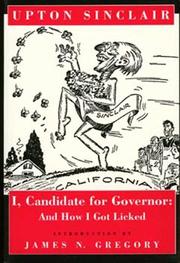| Listing 1 - 2 of 2 |
Sort by
|
Book
ISBN: 022636321X Year: 2016 Publisher: Chicago : The University of Chicago Press,
Abstract | Keywords | Export | Availability | Bookmark
 Loading...
Loading...Choose an application
- Reference Manager
- EndNote
- RefWorks (Direct export to RefWorks)
The United States deported nearly two million illegal immigrants during the first five years of the Obama presidency—more than during any previous administration. President Obama stands accused by activists of being “deporter in chief.” Yet despite efforts to rebuild what many see as a broken system, the president has not yet been able to convince Congress to pass new immigration legislation, and his record remains rooted in a political landscape that was created long before his election. Deportation numbers have actually been on the rise since 1996, when two federal statutes sought to delegate a portion of the responsibilities for immigration enforcement to local authorities. Policing Immigrants traces the transition of immigration enforcement from a traditionally federal power exercised primarily near the US borders to a patchwork system of local policing that extends throughout the country’s interior. Since federal authorities set local law enforcement to the task of bringing suspected illegal immigrants to the federal government’s attention, local responses have varied. While some localities have resisted the work, others have aggressively sought out unauthorized immigrants, often seeking to further their own objectives by putting their own stamp on immigration policing. Tellingly, how a community responds can best be predicted not by conditions like crime rates or the state of the local economy but rather by the level of conservatism among local voters. What has resulted, the authors argue, is a system that is neither just nor effective—one that threatens the core crime-fighting mission of policing by promoting racial profiling, creating fear in immigrant communities, and undermining the critical community-based function of local policing.
Immigration enforcement --- Central-local government relations --- Emigration and immigration law --- United States --- Emigration and immigration --- Government policy. --- immigration, law enforcement, local, locales, city, town, social studies, community, illegal, laws, obama, president, presidency, america, american, united states, deportation, controversy, controversial, congress, legislation, government, legal issues, politics, political, election, federal, statutes, suspects, ethics, morals, economy, conservative, conservatism, republican, partisan.

ISBN: 0520913523 0585079285 9780520913523 9780585079288 0520081978 0520081986 Year: 1994 Publisher: Berkeley : University of California Press,
Abstract | Keywords | Export | Availability | Bookmark
 Loading...
Loading...Choose an application
- Reference Manager
- EndNote
- RefWorks (Direct export to RefWorks)
Here, reprinted for the first time since its original publication, is muckraking journalist Upton Sinclair's lively, caustic account of the 1934 election campaign that turned California upside down and almost won him the governor's mansion. Using his "End Poverty in California" movement (more commonly called EPIC) as a springboard, Sinclair ran for governor as a Democrat, equipped with a bold plan to end the Depression in California by taking over idle land and factories and turning them into cooperative ventures for the unemployed. To his surprise, thousands rallied to the idea, converting what he had assumed would be another of his utopian schemes into a mass political movement of extraordinary dimensions. With a loosely knit organization of hundreds of local EPIC clubs, Sinclair overwhelmed the moderate Democratic opposition to capture the primary election. When it came to the general election, however, his opposition employed highly effective campaign tactics: overwhelming media hostility, vicious red-baiting and voter intimidation, high-priced dirty tricks. The result was a resounding defeat in November. I, Candidate tells the story of Sinclair's campaign while also capturing the turbulent political mood of the 1930s. Employing his trademark muckraking style, Sinclair exposes the conspiracies of power that ensured big-money control over the media and other powerful institutions.
Governors --- Mass media --- Mass communication --- Media, Mass --- Media, The --- Communication --- Kings and rulers --- Public officers --- Election --- History --- Political aspects --- Sinclair, Upton, --- Stirling, Arthur, --- Sinkler, Ėpton, --- Fitch, Clarke, --- Garrison, Frederick, --- Sinclair, Upton Beall, --- Sinḳler, Eypṭon, --- סינקליר, אייפטאן --- סינקליר, אייפטאן, --- סינקלער, אופטאן, --- סינקלער, אייפטאן --- סינקלער, אייפטאן, --- סינקלער, אפטאן --- סינקלער, אפטאן, --- סינקלער, אפטון --- סינקלער, אײפטאן --- סינקלער, א. --- סינקלער, עפטאן --- סינקלער, ע. --- סינקלר, אופטון --- סינקלר, אפטון --- סינקלר, אפטון, --- 辛克萊, --- California --- Alta California (Province) --- CA --- Cal. --- Cali. --- Calif. --- Californias (Province) --- CF --- Chia-chou --- Departamento de Californias --- Kʻaellipʻonia --- Kʻaellipʻonia-ju --- Kʻaellipʻoniaju --- Kalifornii --- Kalifornii︠a︡ --- Kalifornija --- Ḳalifornyah --- Ḳalifornye --- Kālīfūrniyā --- Kaliphornia --- Karapōnia --- Kariforunia --- Kariforunia-shū --- Medinat Ḳalifornyah --- Politeia tēs Kaliphornias --- Provincia de Californias --- Shtat Kalifornii︠a︡ --- State of California --- Upper California --- Πολιτεία της Καλιφόρνιας --- Καλιφόρνια --- Штат Каліфорнія --- Калифорния --- Калифорнија --- Калифорнии --- Каліфорнія --- קאליפארניע --- קליפורניה --- מדינת קליפורניה --- كاليفورنيا --- カリフォルニア --- カリフォルニア州 --- 캘리포니아 --- 캘리포니아 주 --- 캘리포니아주 --- Politics and government --- 20th century --- 1865-1950 --- 20th century american literature. --- 20th century american politics. --- american politics. --- california. --- democrat. --- dirty tricks. --- elections. --- end poverty in california. --- epic clubs. --- epic movement. --- governor. --- great depression. --- gubernatorial. --- journalist. --- leftist politics. --- media hostility. --- muckraker. --- political election. --- political literature. --- political movement. --- political science. --- politics. --- powerful institutions. --- primary election. --- red baiting. --- run for governor. --- the jungle. --- unemployment. --- united states of america. --- utopia. --- voter intimidation.
| Listing 1 - 2 of 2 |
Sort by
|

 Search
Search Feedback
Feedback About UniCat
About UniCat  Help
Help News
News